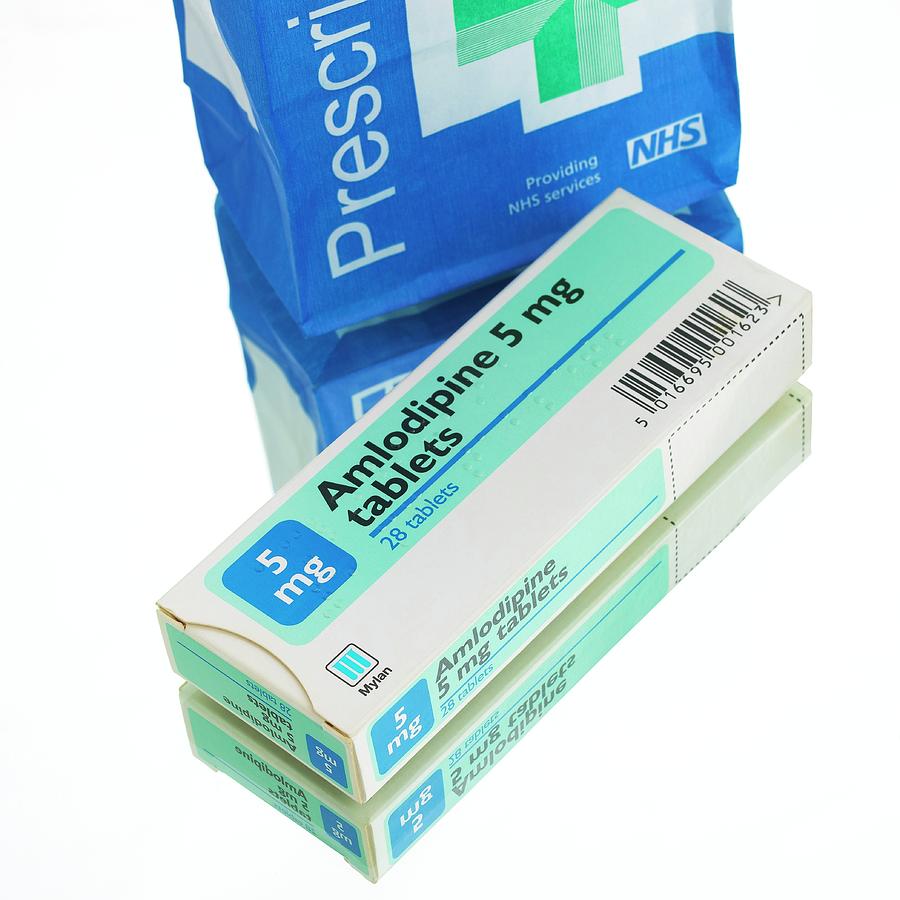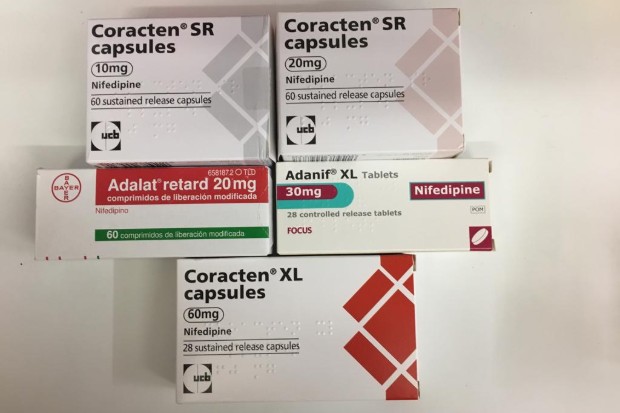Nifedipine And Amlodipine Found To Be Suitable To Treat Hypertension During COVID-19 As They Are Linked To Lower Mortality And Lower Intubation Risk
Source: Nifedipine and Amlodipine Aug 19, 2020 5 years, 5 months, 3 weeks, 6 days, 18 hours, 9 minutes ago
Nifedipine and Amlodipine: While the COVID-19 pandemic continues to wreak havoc globally, there have been concerns on medications taken by patients for various cardiometabolic disorders as they are more vulnerable to the coronavirus infection.

It has been found that patients with diabetes, hypertension, and other comorbidities are at higher risk of death from the virus.
https://www.nature.com/articles/s41569-020-0360-5 and
https://www.thelancet.com/journals/lancet/article/PIIS0140-6736(20)30566-3/fulltext
There were previous speculations that said treatment of hypertension with RAS inhibitors may influence SARS-CoV2 binding to ACE2, promoting the disease.
https://pubmed.ncbi.nlm.nih.gov/32196087/
Those presumptions were based on some experimental findings that RAS inhibitors cause a compensatory increase in tissue levels of ACE2 and that ACE- inhibitors or ARBs may be detrimental in patients exposed to SARS-CoV-2.
https://www.ahajournals.org/doi/full/10.1161/circulationaha.104.510461 and
https://www.ahajournals.org/doi/10.1161/HYPERTENSIONAHA.114.03743
However with many consequent studies negating these findings, major Cardiovascular experts came forward and stated that patients on ACEIs or ARBs should not stop their treatment.
https://www.nejm.org/doi/10.1056/NEJMsr2005760 and
https://jamanetwork.com/journals/jamacardiology/fullarticle/2763843
Importantly in contrast to ACEi/ARB, many studies have gone head to point out that calcium channel blockers (CCBs) do not appear to upregulate ACE2.
https://www.emjreviews.com/diabetes/article/covid-19-is-it-time-to-revisit-the-research-on-calcium-channel-drug-targets/
Another recent study by Reynolds et al also favoured the safety and efficacy of CCB in COVID-19 patients.
https://www.nejm.org/doi/full/10.1056/NEJMoa2008975
Another study published in the journal Lancet by Dr Lei Fang and colleagues also suggested that clinicians should consider withholding angiotensin-converting enzyme inhibitors (ACEIs) or angiotensin receptor blockers (ARBs) because of a potential increased risk of worse clinical outcomes in patients with coronavirus disease 2019 (COVID-19). They further suggested calcium channel blockers as an alternative.
https://www.thelancet.com/journals/lanres/article/PIIS2213-2600(20)30116-8/fulltext
For a long
time already, dihydropyridine calcium channel blockers (CCB) such as Nifedipine including long-acting Nifedipine as well as Amlodipine are typically used agents in the clinical management of hypertension. At the same time, both medications have been utilized to treat various pulmonary disorders with vasoconstriction.
SARS-CoV-2 has been described to use the angiotensin-converting enzyme 2 (ACE2) receptor for entry into target cells expressed by the epithelial cells of the lung, leading to vasoconstrictive, proinflammatory, and pro-oxidative effects
https://jamanetwork.com/journals/jamacardiology/fullarticle/2764299
It is suspected that this vasoconstriction may play a role in the pathogenesis of the disease. Dysregulation or loss of hypoxic pulmonary vasoconstriction is suspected in Coronavirus Disease 2019 (COVID-19) as well.
https://pubmed.ncbi.nlm.nih.gov/32228035/ and
https://academic.oup.com/eurheartj/article/41/19/1801/5810479
In a new study published in the Cureus Journal of Medical Science, Dr Isaac Solaimanzadeh, Internal Medicine, Interfaith Medical Center, Brooklyn, USA, conducted a retrospective review on CCB use in hospitalized patients in search of any difference in outcomes related to specific endpoints: survival to discharge and progression of disease leading to intubation and mechanical ventilation.
https://www.cureus.com/articles/31377-nifedipine-and-amlodipine-are-associated-with-improved-mortality-and-decreased-risk-for-intubation-and-mechanical-ventilation-in-elderly-patients-hospitalized-for-covid-19
The researchers noted that Nifedipine and Amlodipine were found to be associated with significantly improved mortality and a decreased risk for intubation and mechanical ventilation in elderly patients hospitalized with COVID-19
The study team performed a retrospective review of electronic medical records for all patients admitted to a community hospital who tested positive for SARS-CoV-2, who were at or above the age of 65, and who either expired or survived to discharge from hospital between the start of the public health crisis due to the viral disease (earliest admission date of a patient that tested positive at this hospital: February 27, 2020) and April 13, 2020.
For the study only patients with a final disposition on the day of study conclusion were included and that many more patients still hospitalized were not included in this review. The two groups were: (1) Treated with either nifedipine or Amlodipine as part of the CCB group or (2) not treated with either Amlodipine or nifedipine as part of the no-CCB group. Being on either of these medications required that they received more than one dose.
Also patients in both groups were managed with antibiotics in addition to hydroxychloroquine depending on patient consent and/or QTc prolongation status.
The clinical outcomes were assessed for survival to discharge or signed out independently against medical advice (AMA) and expiration. Besides, the authors looked at as a secondary outcome was the need for intubation and mechanical ventilation.
A total of 77 patients were identified for the study based on the criteria. Of the 77 patients that were identified, 18 survived until discharge, and 59 expired.
Also seven patients from the expired group were excluded since they died within one day of presentation to the hospital. Five patients were excluded from the expired group since their age was above that of the eldest patient in the survival group (89 years old).
Of the remaining patients, the research team made the following findings.
-With 65 patients left, 24 were found to have been administered either Amlodipine or nifedipine (CCB group), and 41 were not (No-CCB group).
-Patients treated with a CCB were significantly more likely to survive than those not treated with a CCB: 50% survived, and the remaining 50% expired in the CCB group vs. 14.6% that survived and 85.4% that expired in the No-CCB treatment group.
-67% of patients that survived and that were successfully discharged from the hospital were on a CCB, whereas 74% (35/47) of the patients that expired were not on a CCB
-CCB patients were also significantly less likely to undergo intubation and mechanical ventilation. Only one patient (4.2%) was intubated and mechanically ventilated in the CCB group whereas 16 (39.0%) were intubated in the No-CCB treatment group.
-Other sample medications administered, including antibiotics, fluids as well as steroids were not significantly different between groups.
These study findings revealed that dihydropyridine calcium channel blocker (nifedipine or Amlodipine) usage is associated with significantly improved mortality in elderly patients hospitalized for COVID-19.

The findings also implied that CCB usage is associated with a significantly decreased risk for intubation and mechanical ventilation.
The study team however pointed out that larger clinical studies are warranted on this matter but in the meanwhile, the possible benefits of nifedipine and Amlodipine in patients hospitalized with COVID-19 should be noted.
"For those that already have hypertension and present to hospital with elevated blood pressure, assuming no contraindications exist, it may be fair to give preference to a CCB as first-line therapy for concomitant benefit," they wrote
Dr Solaimanzadeh told Thailand Medical News, “ CCB treatment, while monitoring blood pressure closely in patients that are suffering from COVID-19, and that do not have underlying hypertension, may be envisaged.”
The study team called for further studies of other potential therapies that function as vasodilators in the pulmonary arterial flow to be pursued as well adding that potential benefits may outweigh the risks of including nifedipine or Amlodipine in the treatment regimens of elderly patients with hypertension hospitalized with COVID-19.
The study findings provide an impetus to explore different approaches to the treatment of patients with COVID-19. Focusing on vasodilatory agents may allow for an alternative treatment strategy. Herein, improved flow via the alveolar-capillary unit may be achieved. With improved flow, impediments to oxygenation, including inflammation and vasoconstriction, maybe better negotiated. Furthermore, blood transit improvement as a result of vasodilation may potentially offset clot formation. Lastly, fluid accumulation or oedema that can inhibit oxygenation may be collectively reduced as well. Altogether, the improved flow may attenuate the precipitous progression of the disease.
For more on
Nifedipine and Amlodipine, keep on logging to Thailand Medical News.

